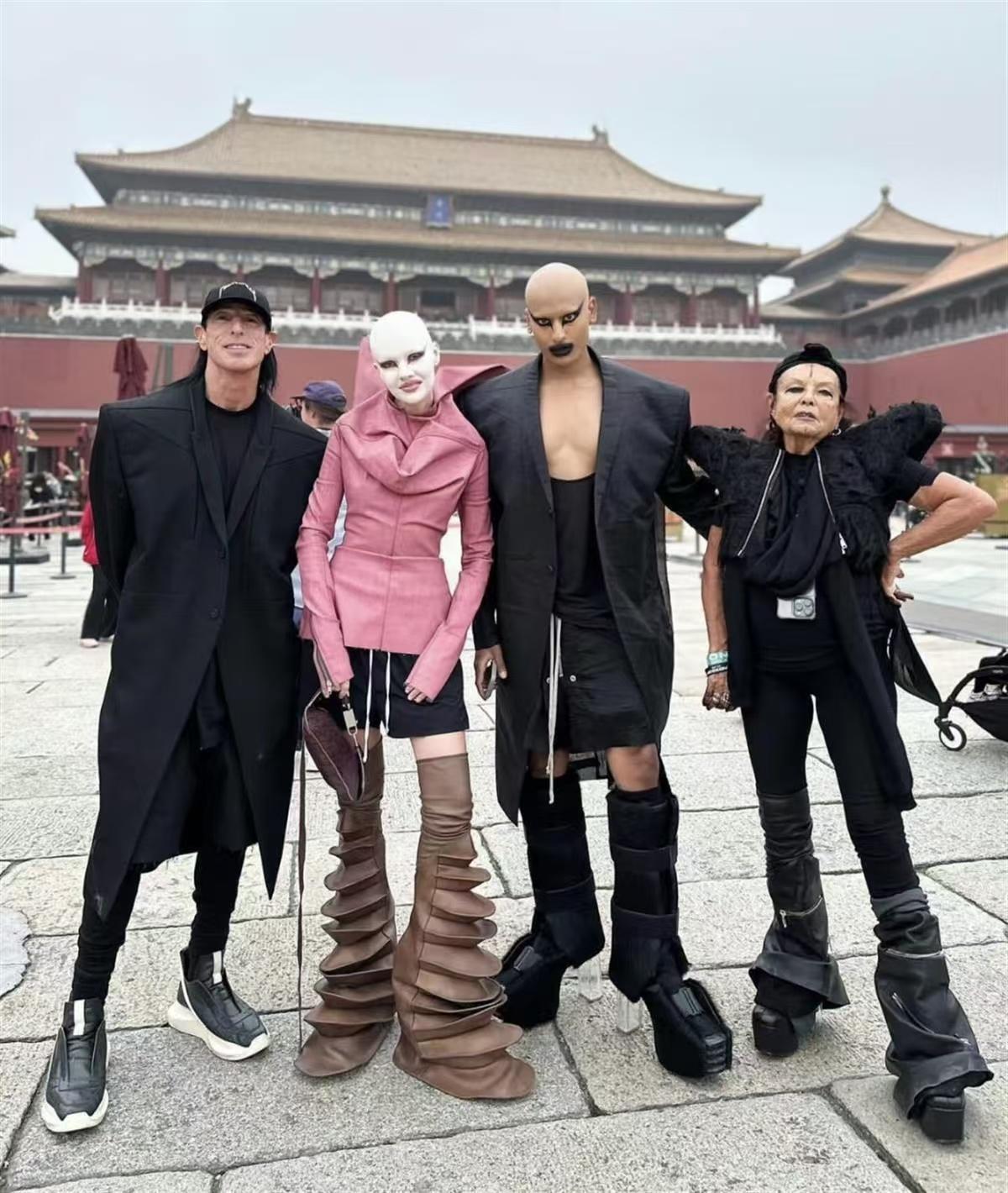
Recently, the Forbidden City has been at the center of a debate following an incident involving American designer Rick Owens. Owens and his team were asked to leave by security due to their unconventional attire during a visit, which led to an outcry by his friend on social media about the perceived unfairness of being turned away based on their clothing. This has sparked a debate with two distinct viewpoints: those who side with the Forbidden City argue for the importance of respecting Chinese culture, while those who support Owens champion the cause of personal freedom in dressing.

According to the visitor guidelines of the Forbidden City, tourists are required to maintain adequate attire and avoid unsightly behavior. Although the attire of Rick Owens and his team was avant-garde, the question of whether it was "unsightly" is subjective and depends on individual aesthetics. The Forbidden City said that their attire did not comply with the guidelines and requested they change; however, Owens and his companions felt their clothing was acceptable. Similar dress code issues have arisen in other public spaces, such as the Guangzhou Metro's restrictions on passengers' appearance, which are designed to uphold public order.
Culturally speaking, the principle of "when in Rome, do as the Romans do" is key in cross-cultural interactions. What Owens wore might not have been controversial in other countries, but in the Forbidden City, a place that bears cultural significance, public attire should conform to certain norms. Data indicates that in the third quarter of this year, 8.186 million foreigners entered China, marking a 48.8% increase from the previous year. As China continues to expand its visa-free travel list and introduces more policies to facilitate foreign visitors, this incident serves as a reminder for authorities to clarify and improve regulations. It also serves as a reminder for foreign visitors to embrace the concept of "when in Rome, do as the Romans do".
While people have the freedom to express themselves through dressing, it's crucial to find a balance between cultural differences and respect for local customs and traditions. With the increasing trend of globalization, it is hoped that this incidentin the Forbidden City can inspire the whole society toreflect on the topic of cultural diversity, thereby further building consensus and achieving a win-win situation.
Source: Lingnan on the Cloud
着奇异服装被故宫保安劝离,衣着自由但也要尊重文化传统
近日,故宫因美国设计师瑞克·欧文斯的“着装风波”引发热议。瑞克·欧文斯与妻友参观故宫时,因前卫着装被安保劝离,随行友人在社交媒体上表达不满,认为因穿着问题被拒入内感到不公。此事迅速引发两派讨论:支持故宫一方认为应尊重中国文化,支持欧文斯一方则强调应尊重个人的着装自由。
根据故宫参观须知,游客需“保持衣容整洁”,避免“有碍观瞻”的行为。虽然瑞克·欧文斯一行的着装前卫,但是否“有损形象”因审美不同,存在主观解读。故宫方面认为他们的着装不符合要求,要求其换装;欧文斯一方则认为自己的穿着并无不妥。类似的情况在其他公共场所也有发生,如广州地铁对乘客妆容和装扮的限制,旨在维护公共秩序。
从文化角度看,“入乡随俗”是跨文化交流中的基本原则。在一些国家,欧文斯的穿着可能不会引发争议,但在中国这一特定文化环境下,公共场合的穿着应符合一定规范。据统计,今年三季度,全国各口岸入境外国人818.6万人次,同比上升48.8%。当前,中国正不断扩大免签国家范围,并持续推出一系列便利外国人来华政策措施,欢迎更多外国游客来看一看、玩一玩。此次事件提醒相关部门进一步细化和优化措施,便于外国游客遵守,也提醒外国游客要更好地“入乡随俗”。
尽管个人服饰表达自由,但是文化差异和尊重当地习惯、传统之间需要取得平衡。随着全球化的日益增强,期待故宫着衣事件的出现,能够启发全社会都来关注文化多元化这个话题,从而进一步凝共识,实现共赢。
文|秦川(北京知名时事评论员)
译|史洋溢
英文审校|赵凡
-
Vocational students help agricultural products reach more customers through live streaming
2024-10-21 23:00:31 -
Poster丨Friends in Guangzhou
2024-10-21 22:02:19 -
Maritime Guangdong Program: 'Swimming Lesson' to be screened at TISFF
2024-10-21 20:57:14 -
The 8th China Intangible Cultural Heritage Expo: combination of tradition and new generation
2024-10-20 21:46:45






